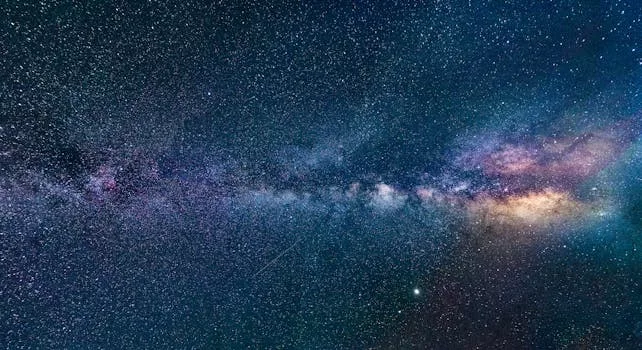
“
Beyond the Milky Way: Imagining New Worlds and Possibilities – Exploring the Vastness of Space
Beyond the Milky Way: Imagining New Worlds and Possibilities is an exciting topic that has captivated human imagination for centuries. The possibility of life beyond our galaxy, the Milky Way, has sparked intense scientific research, fascination, and speculation. As we continue to explore the vastness of space, we are constantly reminded of the infinite possibilities that lie ahead. In this article, we will delve into the latest discoveries, theories, and advancements in space exploration, and what they mean for our understanding of the universe.
Introduction to the Milky Way
The Milky Way is a barred spiral galaxy that is estimated to contain between 200-400 billion stars. It is just one of the billions of galaxies in the observable universe, and yet, it is home to an incredible array of celestial objects, including planets, moons, asteroids, comets, and other forms of matter. The Milky Way is thought to have formed around 13.6 billion years ago, during a time known as the cosmic dark ages, and has been evolving ever since.
Exploring the Vastness of Space
Space exploration has come a long way since the launch of the first artificial satellite, Sputnik, in 1957. Since then, we have sent robotic missions to explore our solar system, landed humans on the Moon, and even launched a probe that has entered interstellar space. The Voyager 1 spacecraft, launched in 1977, is now over 14 billion miles away from Earth, making it the most distant human-made object in space. For a deeper dive into the journey of imagination beyond the stars, check out Charting New Realms: The Journey of Imagination Beyond the Stars.
New Worlds and Possibilities
The discovery of exoplanets, planets that orbit stars other than the Sun, has opened up new possibilities for life beyond our solar system. To date, over 4,000 exoplanets have been discovered, and many of these planets are believed to be located in the habitable zones of their respective stars, where conditions are suitable for life as we know it. The discovery of these exoplanets has also raised questions about the possibility of intelligent life beyond Earth. This topic is further explored in From Stardust to Dreams: Imagining Life Beyond the Stars.
Takeaways
- The Milky Way is just one of the billions of galaxies in the observable universe.
- Space exploration has come a long way since the launch of the first artificial satellite, Sputnik, in 1957.
- The discovery of exoplanets has opened up new possibilities for life beyond our solar system.
- The possibility of intelligent life beyond Earth is a topic of ongoing research and debate.
Conclusion
Beyond the Milky Way: Imagining New Worlds and Possibilities is a topic that continues to capture our imagination and inspire new generations of scientists, engineers, and explorers. As we continue to explore the vastness of space, we are reminded of the infinite possibilities that lie ahead, and the importance of ongoing research and exploration to advance our understanding of the universe. For more on this subject, read Beyond the Milky Way: Imagining New Worlds and Possibilities – Exploring the Vast Expanse of the Universe.
Future of Space Exploration
The future of space exploration is exciting and promising, with new missions and technologies being developed to explore our solar system and beyond. From reusable rockets to Mars colonization, the possibilities are endless, and the next few decades will be crucial in shaping the future of space exploration.
Challenges and Opportunities
While the possibilities of space exploration are vast, there are also significant challenges that must be addressed. From the effects of space radiation on the human body to the psychological impacts of long-duration spaceflight, the challenges are numerous, but so are the opportunities. The development of new technologies and strategies to overcome these challenges will be crucial in advancing our understanding of space and our place within it.
Space Exploration and Society
Space exploration is not just about scientific discovery; it also has significant implications for society. From the development of new technologies to the inspiration of new generations of scientists and engineers, the impact of space exploration on society is profound. As we continue to explore the vastness of space, we must also consider the social and cultural implications of our discoveries and the importance of international cooperation in advancing our understanding of the universe.


